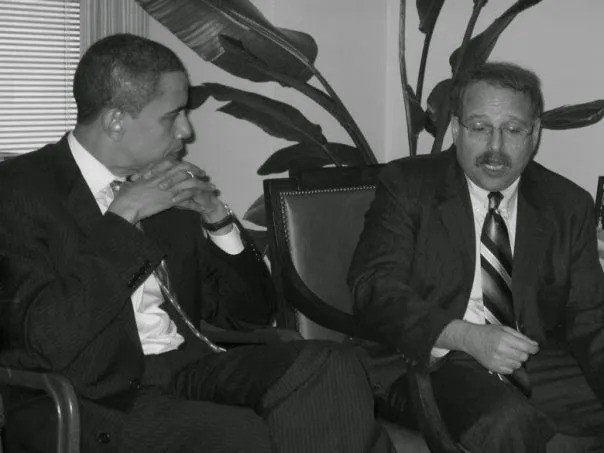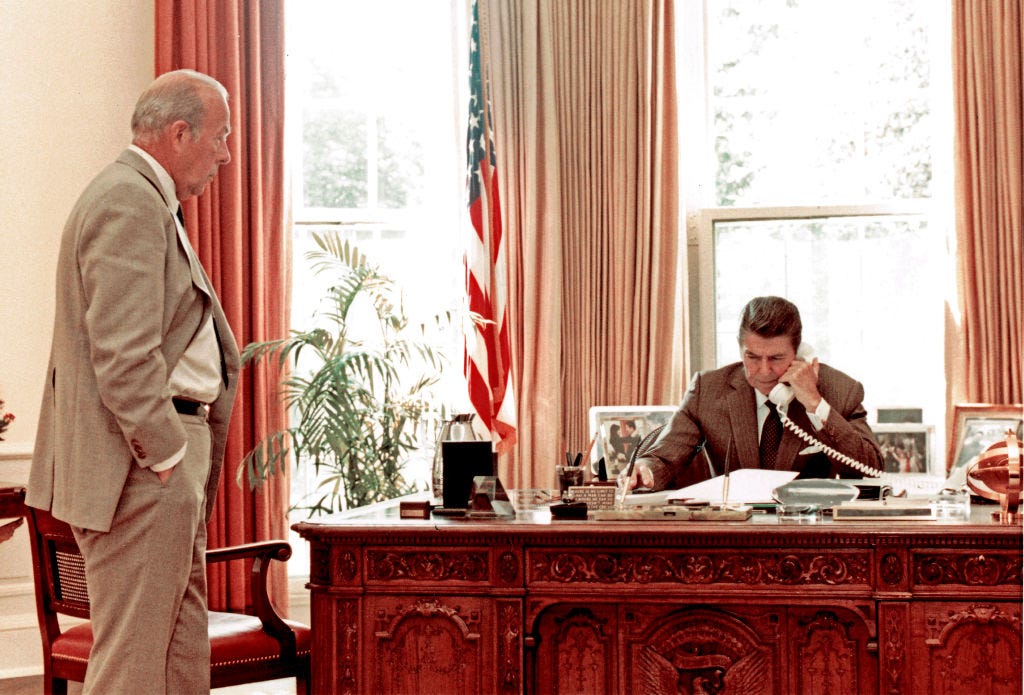By Prem Thakker,
In this exclusive interview, MJ Rosenberg reveals behind-the-scenes details about the influential pro-Israel lobby – and talks Jimmy Carter, Joe Biden, and AIPAC’s shift to the GOP right.

If there’s one person who can give an unfiltered behind-scenes look at one of the most influential pro-Israel groups in the US, it’s MJ Rosenberg.
The Washington, DC, veteran spent more than four years at the American Israel Public Affairs Committee, better known as AIPAC, in the 1980s after working for more than a decade as an aide in the House and Senate.
Since leaving, Rosenberg – who has had the ear of the nation’s highest leaders, from Jimmy Carter to Barack Obama – has become one of AIPAC’s most vocal insider-turned-critics.
Last year, AIPAC pumped more than $100 million into US elections, supporting politicians from across the ideological spectrum – including election deniers – and primarying others
It paid off. While AIPAC boasts of winning in every House seat an endorsee was on the ballot (albeit, often endorsing candidates they think already have a good chance of winning), the US maintained its unconditional support for Israel’s genocide in Gaza. The endless deference to Israel’s leader, Benjamin Netanyahu, was led by President Joe Biden, a self-described Zionist who, over his long career, became the top recipient of pro-Israel contributions among US senators since 1990.
Rosenberg – who helped write the “AIPAC line,” as he described it, penning speeches and editing the group’s newsletter blasted to officials in every branch – offers a unique perspective on how AIPAC strategy has evolved over the years.
Speaking to Zeteo before Biden left office, Rosenberg, who later worked at the Israel Policy Forum and Media Matters, gives an inside look at how AIPAC operates inside Washington. He also reveals some of his own interesting interactions with powerful politicians, including when President Carter told him that AIPAC helped cause “the worst mistake” he made during his presidency.
Can you tell us what AIPAC’s main strategy was when you were there? Any specific examples?
ROSENBERG: Its main priority was to ensure that the then-$2.2 billion military and economic aid package kept coming and that no conditions of any sort were attached to them. That required utilizing its “enforcers” on Capitol Hill (who were then almost all Democrats). In 1982, President [Ronald] Reagan was furious about Israel’s bombing of Beirut, so [AIPAC] used Hill Democrats and Republicans to ensure that his anger did not lead to any sort of punitive action by Congress or State, Defense, etc.

AIPAC’s overarching strategy was to prevent criticism of Israel by pretty much anyone of influence, whether in government or not. Accordingly, they had a war room where one guy had a whole staff devoted to tracking down negative statements by journalists and celebrities of any kind. The same guy was in charge of infiltrating Arab-American organizations and reporting back on their strategies. He used “Arab-looking” Jewish kids. They never accomplished much with the Arab organizations, but their spying on left-leaning Jewish organizations did lead to people [allegedly] losing their jobs when their employers found out they were secret peaceniks. McCarthyist tactics were always in their bag of tricks. If you got in the way, they rolled over you. This goes back to when I was there.
Was there a shift to the right? If so, when did this happen, and why?
ROSENBERG: AIPAC shifted to the right when Reagan was elected. That was in 1980 – about the same time that liberal Democrat Tom Dine became AIPAC’s executive director. This presented a problem [that] the big money people – the AIPAC officers – attempted to solve by crowding Dine to make sure he didn’t act on his personally dovish views.
Their enforcer inside was Steve Rosen, who monitored Dine’s actions and reported back to the board, and devised the idea of downplaying AIPAC’s traditional role as a lobby. It succeeded. Suddenly AIPAC was trolling around the Defense and State Departments as much as the Capitol. This was pretty effective, especially when AIPAC used its influence to get fellow Israel-Firsters appointed to key positions at Foggy Bottom [the State Department] and the Pentagon.
So, over time, they have become much more Republican. So it solidified.
Source: https://zeteo.com
Disclaimer: We at Prepare for Change (PFC) bring you information that is not offered by the mainstream news, and therefore may seem controversial. The opinions, views, statements, and/or information we present are not necessarily promoted, endorsed, espoused, or agreed to by Prepare for Change, its leadership Council, members, those who work with PFC, or those who read its content. However, they are hopefully provocative. Please use discernment! Use logical thinking, your own intuition and your own connection with Source, Spirit and Natural Laws to help you determine what is true and what is not. By sharing information and seeding dialogue, it is our goal to raise consciousness and awareness of higher truths to free us from enslavement of the matrix in this material realm.
 EN
EN FR
FR



























The Evil Agents of the Israel Lobby-AIPAC drive, dictate, control OUR(?) Foreign and DOMESTIC Policies!